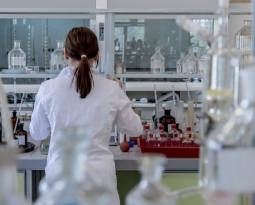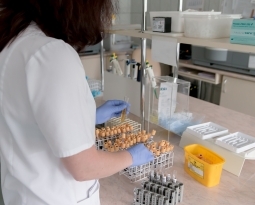ProUnitas: Using Data to Help Students Succeed
How can technology help mitigate the ongoing challenges that schools and students face both in and outside of the classroom? With poverty, hunger, homelessness, and other non-academic issues creating barriers to success in low-income neighborhoods, experts are acutely aware that schools are not always equipped to deal with these forces. Andrew Cunningham, Global Education Advisor at Aga Khan Foundation, said, “In many communities, Coca-Cola knows their supply chain better than the local education officials [know their] kids.” To provide schools with more knowledge and better forecasting tools, ProUnitas was founded by Adeeb Barqawi in Houston.
Barqawi was working with Teach for America at Kashmere High School in 2014 when he witnessed firsthand the impact of these issues on student success. During his experience there, he noted, “I was ready to teach, but my kids walked in hungry, or had mental health issues, but our school counselors were overwhelmed.” Located in a low-income neighborhood in Houston, Kashmere High School was designated as an “Improvement Required” school at the time. Counselors and teachers would often go above and beyond to help their students but the result was typically staff burnout or a lack of institutional memory when a teacher or counselor left the school. Barqawi explained that the problem wasn’t individual teachers or counselors; the problem was systematic: “We cannot build schools on superheroes.”
Part of the problem is lack of accessibility to resources. Kashmere High School’s former principal Reginald Bush said, “When you make a comparison, a school with the services versus the school without, one is going to be a higher-performing school, one is going to be a lower-performing school.” To help students get access to these services, ProUnitas gathers data to help the school identify the needs of their students sooner. It measures key metrics on a weekly basis: attendance, in-school behavior, and satisfactory homework performance. If the system finds a student deviates from any of the categories, a ProUnitas counselor visits the student and uncovers the cause of the behavior change, such as death in the family, homelessness, lack of clothing, and so on. From there, the counselor could connect the student with the necessary resources, whether it is mentorship, food services, health services, counselling, and others.
Because of its data approach, ProUnitas’ platform allows the school to keep track of a student’s progress instead of relying on an individual teacher’s memory. Its rationalized strategy to delivering services to at-risk students helps allot resources more efficiently. Albert Wei, Director of Partnerships and Special Projects at ProUnitas, acknowledged, “We couldn’t rely on a haphazard collection of programs to serve students’ needs. There needed to be coordination and someone analyzing feedback to see if and how students were impacted.” Because of its approach, ProUnitas is having a major impact on Kashmere High School, with the school only two students’ test scores away from no longer having the “Improvement Required” designation. Barqawi hopes to one day apply the scalable technology nationwide.
Are you building and innovating software to improve at-risk schools and help students overcome barriers to success? Your experiments could be eligible for the R&D Tax Credit and you can receive up to 14% back on your expenses. To find out more, please contact a Swanson Reed R&D Specialist today or check out our free online eligibility test.
Who We Are:
Swanson Reed is Texas’ largest Specialist R&D tax advisory firm, offering tax credibility assessments, claim preparation, and advisory services. We manage all facets of the R&D tax credit program in Texas, from claim prep & audit compliance to claim disputes.
Swanson Reed regularly hosts free webinars and provides free IRS CE and CPE credits for CPA’s. For more information please visit us at www.swansonreed.com/webinars or contact your usual Swanson Reed representative

















